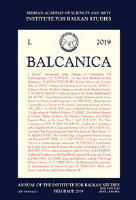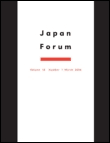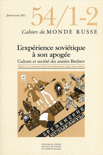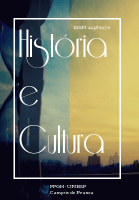
Balcanica
Scope & Guideline
Fostering Dialogue Through Multidisciplinary Research
Introduction
Aims and Scopes
- Historical Interactions:
The journal covers historical relations between the Balkans and Italy, including political alliances, conflicts, and cultural exchanges, providing insights into how these interactions have shaped contemporary dynamics. - Cultural Studies:
A significant focus is placed on cultural studies, including art, literature, and religious practices, exploring how cultural exchanges have influenced identities in the Balkans and Italy. - Minority Studies:
The journal examines the experiences and impacts of minority communities, especially in the context of national and ethnic identities in the Balkans, contributing to broader discussions on multiculturalism and integration. - Political Analysis:
Analysis of political movements, ideologies, and their historical contexts is a core area, particularly regarding communism, fascism, and Eurocommunism, providing critical perspectives on their historical legacies. - Post-war Studies:
The journal investigates post-war societies in the Balkans and their transformations, including the repercussions of war on cultural and social structures, as well as the role of propaganda and memory.
Trending and Emerging
- Political Alliances and Ideologies:
There has been a marked increase in studies exploring political alliances, particularly during the Cold War era, focusing on the nuances of Eurocommunism and its implications for Yugoslav-Italian relations. - Cultural Exchange and Artistic Dialogue:
Emerging themes emphasize the cultural dialogue between Italy and the Balkans, particularly in art and literature, showcasing how these exchanges have shaped cultural identities and artistic expressions. - Memory and Collective Identity:
Recent works increasingly address themes of memory and collective identity, particularly in the context of war and its aftermath, exploring how historical narratives shape contemporary societal understandings. - Impact of Minorities on National Narratives:
A growing interest in the role of minority communities in shaping national narratives and identities in the Balkans is evident, highlighting the complexities of multicultural interactions. - Interdisciplinary Approaches:
There is a trend towards employing interdisciplinary methodologies, integrating perspectives from sociology, anthropology, and political science, reflecting a holistic approach to understanding Balkan issues.
Declining or Waning
- Classical Historical Narratives:
Themes centered around traditional historical narratives and events from earlier periods (pre-20th century) have become less frequent, as the journal shifts focus towards more contemporary issues and their implications. - Overly Generalized Studies:
There has been a noticeable decrease in papers that present overly generalized studies without specific regional or temporal focus, as the journal increasingly values nuanced and detailed analyses that engage with specific contexts. - Religious Studies:
While religious themes remain relevant, the specific focus on historical religious practices and institutions has waned, likely due to a broader interest in secularism and the sociopolitical implications of religion in modern contexts.
Similar Journals

MODERN ASIAN STUDIES
Illuminating Contemporary Issues in Asian StudiesModern Asian Studies, published by Cambridge University Press, is a highly esteemed journal that encompasses scholarly research focused on the vibrant and complex narratives of Asian societies, cultures, and histories. With an ISSN of 0026-749X and an E-ISSN of 1469-8099, this journal has been at the forefront of Asian studies since its inception in 1967 and continues to evolve, striving towards excellence with a convergence period extending to 2024. It holds a prestigious Q1 ranking in History and Q2 rankings in both Geography, Planning, and Development as well as Sociology and Political Science as of 2023. With Scopus rankings placing it in the top 92nd percentile in History and maintaining significant standing in other social sciences categories, Modern Asian Studies provides invaluable insights for researchers, professionals, and students alike. Although not an open-access journal, it remains committed to disseminating impactful research that addresses critical issues within Asian studies, enhancing the academic discourse and contributing to a deeper understanding of the region's past and present.

Scandia
Unveiling Historical Contexts, One Article at a TimeScandia is a distinguished academic journal dedicated to the field of history, published by SCANDIA in Sweden. With its origins dating back to 1976, the journal offers a platform for scholarly discourse, focusing on various historical perspectives and methodologies. Although currently not recognized as an Open Access journal, it fosters a rich exchange of ideas and original research, appealing to historians, researchers, and students alike. Operating within the Q4 quartile of its category for 2023, Scandia holds a significant position in the history landscape, ranking at #1627 out of 1760 in Scopus, representing the 7th percentile. With a commitment to quality scholarship, Scandia encourages contributions that challenge existing narratives and contribute to the broader understanding of historical contexts.
Please send your submissions or inquiries to the editorial office at Historiska Inst, Box 2074, Lund 220 02, Sweden.

Italica Belgradensia
Exploring the Depths of Linguistics and Literature.Italica Belgradensia is a distinguished academic journal published by the University of Belgrade, Faculty of Philology, dedicated to advancing research in the fields of linguistics, literature, and cultural studies. With an ISSN of 0353-4766 and an E-ISSN of 2812-877X, this journal serves as a critical platform for scholars, professionals, and students to explore contemporary issues and trends in the philological disciplines. Although it currently does not offer open access, Italica Belgradensia maintains a rigorous peer-review process, ensuring high-quality and impactful scholarship. The journal is committed to fostering interdisciplinary dialogue and encourages submissions that reflect innovative methodologies and theoretical approaches. With its strategic location in Belgrade, the journal aims to bridge Eastern and Western academic traditions, enriching the global discourse in philology.

Japan Forum
Navigating the Complexities of Japanese Society and CultureWelcome to Japan Forum, a prestigious journal published by Routledge Journals, Taylor & Francis Ltd, dedicated to the multifaceted exploration of contemporary Japan and its rich cultural heritage. With an ISSN of 0955-5803 and an E-ISSN of 1469-932X, this journal holds a prominent position in the academic community, boasting a 2023 impact factor in the Q1 category for both Cultural Studies and History, demonstrating its significance in fostering scholarly discussions in these areas. Furthermore, it occupies the Q2 category in Sociology and Political Science, highlighting its interdisciplinary reach. Japan Forum has consistently provided a platform for researchers, professionals, and students since its inception in 1989, with publication timelines spanning notable years until 2024. Though it currently does not offer Open Access, the journal's rigorous peer-review process and wide-ranging scope ensure that it remains a vital resource for those seeking to deepen their understanding of Japanese society, politics, and culture. Its impressive rankings in Scopus further underscore the journal's commitment to academic excellence, making it an essential reference for anyone engaged in the study of Japan.

Spal
Exploring New Frontiers in Historical Research.Spal is a distinguished academic journal dedicated to the fields of Archaeology and History, published by the University of Seville, Editorial. With an ISSN of 1133-4525 and an E-ISSN of 2255-3924, it has established a prominent reputation within the scholarly community, currently enjoying an impressive Q1 ranking in Archeology (Arts and Humanities) and History, alongside a Q2 ranking in Archeology for 2023. The journal serves as a critical platform for researchers, professionals, and students alike, promoting the dissemination of cutting-edge research and innovative methodologies in these vital disciplines. Spal's Scopus Ranks place it in the 84th percentile for Arts and Humanities - History and the 72nd for Archeology within the field, emphasizing its impact and relevance in contemporary scholarship. Although it operates under a traditional access model, its commitment to advancing knowledge and discourse in archaeological and historical studies remains unwavering. The journal's coverage spans from 2015 to 2024, positioning it well to contribute to ongoing academic conversations and foster collaborations within the global research community.

Acta Historica Tallinnensia
Advancing Knowledge in Estonian and Global HistoryActa Historica Tallinnensia, published by the Estonian Academy Publishers, is a prominent open-access journal dedicated to the field of history. Since its inception in 2008, the journal has aimed to serve as a vital platform for scholarly dialogue and innovative research developments in historical studies. With an impact factor placing it in the fourth quartile in the history category, this journal provides a unique opportunity for researchers, professionals, and students to disseminate their findings and engage with contemporary historiographical debates. Accessible to a global audience since 2021, Acta Historica Tallinnensia not only highlights the richness of Estonian history but also encourages contributions from diverse historical contexts, creating a vibrant discourse for history enthusiasts. Its ISSN is 1406-2925 and E-ISSN is 1736-7476, further ensuring its credibility and reach. Based in Tallinn, Estonia, the journal fosters scholarly collaboration and aims to increase visibility for emerging voices in the discipline.

CAHIERS DU MONDE RUSSE
Pioneering Interdisciplinary Research on Russia's Past and PresentCAHIERS DU MONDE RUSSE, published by EDITIONS ECOLE HAUTESETUDES & SCIENCES SOCIALES in France, is an esteemed journal dedicated to the interdisciplinary study of Russian history, culture, and politics. The journal embraces a variety of scholarly insights, making significant contributions to the fields of History, Political Science, and Sociology. With its ISSN 1252-6576 and E-ISSN 1777-5388, it has established a reliable presence in academic discourse since 1999, with continuous publications until 2024. Despite its current quartile rankings placing it in Q3 and Q4 categories in pivotal fields, CAHIERS DU MONDE RUSSE plays a critical role in fostering knowledge and discussion among researchers and students alike. It serves not only as a platform for disseminating research but also as a source of rigorous analysis and historical reflection, reflecting the dynamic evolution of Russian studies within the global context.

NUOVA RIVISTA STORICA
A Gateway to Nuanced Historical AnalysisNUOVA RIVISTA STORICA is a distinguished journal dedicated to the field of history, published by SOC EDITRICE DANTE ALIGHIERI SRL in Italy. With a long-standing tradition since its inception, the journal has been a pivotal platform for scholarly discourse, illuminating various historical narratives and perspectives. Though it is currently not an open-access publication, NUOVA RIVISTA STORICA provides robust access options for readers and researchers keen on exploring nuanced historical analyses. As demonstrated by its standing in the Q4 quartile of history journals and its ranking of #1425 out of 1760 within the Scopus database, it remains a valuable resource for emerging scholars and seasoned academics alike. The journal's commitment to advancing historical scholarship makes it an essential read for anyone engaged in the study of history, culture, and societal evolution.

Historia e Cultura
Advancing Understanding of History and IdentityHistoria e Cultura is a distinguished open-access journal focusing on the dynamic and multifaceted exploration of history and culture within the context of the Humanities. Published by the UNIV ESTADUAL PAULISTA JULIO MESQUITA FILHO, FAC CIENCIAS HUMANAS & SOCIAIS, the journal serves as a vital resource for researchers, professionals, and students engaged in the fields of historical research and cultural studies. Since transitioning to open access in 2012, Historia e Cultura aims to democratize knowledge by providing free, unrestricted access to high-quality articles that foster scholarly exchange and innovation. Although the specific impact factor remains undisclosed, the journal is dedicated to contributing to the academic discourse through rigorous peer-reviewed research. Situated in Brazil, Historia e Cultura is well-positioned to address both local and global issues, encouraging critical engagement with cultural heritage and identity. Researchers and scholars are invited to submit their work, ensuring that diverse perspectives are represented in the study of our shared history.

Transylvanian Review
Connecting Cultures: A Deep Dive into Transylvania's Historical NarrativesTransylvanian Review is an esteemed academic journal published by the CENTER TRANSYLVANIAN STUDIES, focusing on the fields of cultural studies and history. Since its inception in 2008, this journal has been committed to exploring the historical and cultural dynamics of Transylvania and the broader region, contributing to the scholarly discourse on Eastern European studies. Although currently classified in the Q4 quartile of both cultural studies and history in 2023, it serves as a valuable resource for researchers, professionals, and students aiming to deepen their understanding of cultural intersections and historical narratives. With its commitment to interdisciplinary approaches and rigorous scholarship, Transylvanian Review plays an essential role in fostering dialogue and insight within the academic community, and it aims to continue expanding its influence through accessible and impactful articles. Based in Cluj-Napoca, Romania, it enriches the academic landscape with a unique focus on regional studies.